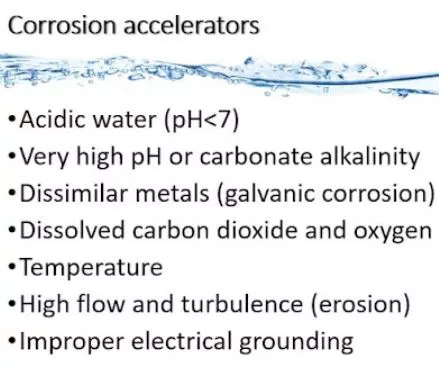Impact of Corrosion on Water Quality
Corrosion in pipes can significantly affect the quality of water supplied to homes and businesses. As metal pipes deteriorate, they can leach harmful substances into the water, leading to health risks for consumers. This can manifest as changes in taste, odor, and color, making the water less palatable and potentially unsafe for consumption.
Furthermore, the presence of heavy metals, such as lead and copper, due to pipe corrosion can pose serious health concerns, especially for vulnerable populations like children and pregnant women. Regular monitoring and testing of water quality are essential to identify these risks early and ensure safe drinking water standards are maintained.
Preventive Measures Against Corrosion
Implementing preventive measures is crucial in mitigating the risk of pipe corrosion. Homeowners can consider installing water softeners to reduce mineral buildup, which contributes to corrosion. Additionally, using corrosion-resistant materials during plumbing upgrades can help prolong the lifespan of the system.
Regular maintenance, such as flushing the system and checking for leaks, can also prevent corrosion-related issues. By staying proactive and addressing potential problems early, homeowners can save on costly repairs and enhance the durability of their plumbing systems.
Case Studies: Successful Corrosion Management
Examining real-world case studies can provide valuable insights into effective corrosion management strategies. For instance, a local hotel implemented a comprehensive water quality assessment and discovered that stray voltage was contributing to their pipe issues. By addressing the electrical interference and applying a protective coating to their pipes, they significantly reduced corrosion rates and extended the life of their plumbing.
Another example includes a residential community that adopted routine water testing and treatment plans, leading to improved water quality and reduced instances of pipe leaks. These case studies highlight the importance of tailored solutions and the benefits of proactive measures in managing corrosion effectively.
Choosing the Right Water Treatment Solutions
Selecting the appropriate water treatment solution is essential for addressing corrosion issues. Options such as reverse osmosis systems, water softeners, and chemical treatments can be tailored to specific water quality problems. Understanding the unique characteristics of your water supply will guide homeowners in making informed decisions.
Consulting with water quality experts can provide personalized recommendations based on individual needs. By investing in the right treatment solutions, homeowners can not only improve their water quality but also protect their plumbing systems from the damaging effects of corrosion.
 SINCE-1990
SINCE-1990 SINCE-1990
SINCE-1990 SINCE-1990
SINCE-1990 SINCE-1990
SINCE-1990 SINCE-1990
SINCE-1990 SINCE-1990
SINCE-1990
